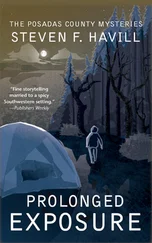Steven Dubner - Freakonomics
Здесь есть возможность читать онлайн «Steven Dubner - Freakonomics» весь текст электронной книги совершенно бесплатно (целиком полную версию без сокращений). В некоторых случаях можно слушать аудио, скачать через торрент в формате fb2 и присутствует краткое содержание. Жанр: Старинная литература, на русском языке. Описание произведения, (предисловие) а так же отзывы посетителей доступны на портале библиотеки ЛибКат.
- Название:Freakonomics
- Автор:
- Жанр:
- Год:неизвестен
- ISBN:нет данных
- Рейтинг книги:3 / 5. Голосов: 1
-
Избранное:Добавить в избранное
- Отзывы:
-
Ваша оценка:
- 60
- 1
- 2
- 3
- 4
- 5
Freakonomics: краткое содержание, описание и аннотация
Предлагаем к чтению аннотацию, описание, краткое содержание или предисловие (зависит от того, что написал сам автор книги «Freakonomics»). Если вы не нашли необходимую информацию о книге — напишите в комментариях, мы постараемся отыскать её.
Freakonomics — читать онлайн бесплатно полную книгу (весь текст) целиком
Ниже представлен текст книги, разбитый по страницам. Система сохранения места последней прочитанной страницы, позволяет с удобством читать онлайн бесплатно книгу «Freakonomics», без необходимости каждый раз заново искать на чём Вы остановились. Поставьте закладку, и сможете в любой момент перейти на страницу, на которой закончили чтение.
Интервал:
Закладка:
Indeed, academic studies have substantiated Mills’s anxiety. In examining the income gap between black and white adults—it is well established that blacks earn significantly less—scholars have found that the gap is virtually eradicated if the blacks’ lower eighth-grade test scores are taken into account. In other words, the black-white income gap is largely a product of a black-white education gap that could have been observed many years earlier. “Reducing the black-white test score gap,” wrote the authors of one study, “would do more to promote racial equality than any other strategy that commands broad political support.”
So where does that black-white test gap come from? Many theories have been put forth over the years: poverty, genetic makeup, the “summer setback”
phenomenon (blacks are thought to lose more ground than whites when school is out of session), racial bias in testing or in teachers’ perceptions, and a black backlash against “acting white.”
In a paper called “The Economics of ‘Acting White,’” the young black Harvard economist Roland G. Fryer Jr. argues that some black students “have tremendous disincentives to invest in particular behaviors (i.e., education, ballet, etc.) due to the fact that they may be deemed a person who is trying to act like a white person (a.k.a. ‘selling-out’). Such a label, in some neighborhoods, can carry penalties that range from being deemed a social outcast, to being beaten or killed.” Fryer cites the recollections of a young Kareem Abdul-Jabbar, known then as Lew Alcindor, who had just entered the fourth grade in a new school and discovered that he was a better reader than even the seventh graders: “When the kids found this out, I became a target…. It was my first time away from home, my first experience in an all-black situation, and I found myself being punished for everything I’d ever been taught was right. I got all A’s and was hated for it; I spoke correctly and was called a punk. I had to learn a new language simply to be able to deal with the threats. I had good manners and was a good little boy and paid for it with my hide.”
Fryer is also one of the authors of “Understanding the Black-White Test Score Gap in the First Two Years of School.” This paper takes advantage of a new trove of government data that helps reliably address the black-white gap. Perhaps more interestingly, the data do a nice job of answering the question that every parent—black, white, and otherwise—wants to ask: what are the factors that do and do not affect a child’s performance in school?
In the late 1990s, the U.S. Department of Education undertook a monumental project called the Early Childhood Longitudinal Study. The ECLS sought to measure the academic progress of more than twenty thousand children from kindergarten through the fifth grade. The subjects were chosen from across the country to represent an accurate cross section of American schoolchildren.
The ECLS measured the students’ academic performance and gathered typical survey information about each child: his race, gender, family structure, socioeconomic status, the level of his parents’ education, and so on. But the study went well beyond these basics. It also included interviews with the students’
parents (and teachers and school administrators), posing a long list of questions more intimate than those in the typical government interview: whether the parents spanked their children, and how often; whether they took them to libraries or museums; how much television the children watched.
The result is an incredibly rich set of data—which, if the right questions are asked of it, tells some surprising stories.
How can this type of data be made to tell a reliable story? By subjecting it to the economist’s favorite trick: regression analysis. No, regression analysis is not some forgotten form of psychiatric treatment. It is a powerful—if limited—tool that uses statistical techniques to identify otherwise elusive correlations.
Correlation is nothing more than a statistical term that indicates whether two variables move together. It tends to be cold outside when it snows; those two factors are positively correlated. Sunshine and rain, meanwhile, are negatively correlated. Easy enough—as long as there are only a couple of variables. But with a couple of hundred variables, things get harder. Regression analysis is the tool that enables an economist to sort out these huge piles of data. It does so by artificially holding constant every variable except the two he wishes to focus on, and then showing how those two co-vary.
In a perfect world, an economist could run a controlled experiment just like a physicist or a biologist does: setting up two samples, randomly manipulating one of them, and measuring the effect. But an economist rarely has the luxury of such pure experimentation. (That’s why the school-choice lottery in Chicago was such a happy accident.) What an economist typically has is a data set with a great many variables, none of them randomly generated, some related and others not.
From this jumble, he must determine which factors are correlated and which are not.
In the case of the ECLS data, it might help to think of regression analysis as performing the following task: converting each of those twenty thousand schoolchildren into a sort of circuit board with an identical number of switches.
Each switch represents a single category of the child’s data: his first-grade math score, his third-grade math score, his first-grade reading score, his third-grade reading score, his mother’s education level, his father’s income, the number of books in his home, the relative affluence of his neighborhood, and so on.
Now a researcher is able to tease some insights from this very complicated set of data. He can line up all the children who share many characteristics—all the circuit boards that have their switches flipped the same direction—and then pinpoint the single characteristic they don’t share. This is how he isolates the true impact of that single switch on the sprawling circuit board. This is how the effect of that switch—and, eventually, of every switch—becomes manifest.
Let’s say that we want to ask the ECLS data a fundamental question about parenting and education: does having a lot of books in your home lead your child to do well in school? Regression analysis can’t quite answer that question, but it can answer a subtly different one: does a child with a lot of books in his home tend to do better than a child with no books? The difference between the first and second questions is the difference between causality (question 1) and correlation (question 2). A regression analysis can demonstrate correlation, but it doesn’t prove cause. After all, there are several ways in which two variables can be correlated. X can cause Y; Y can cause X; or it may be that some other factor is causing both X and Y. A regression alone can’t tell you whether it snows because it’s cold, whether it’s cold because it snows, or if the two just happen to go together.
The ECLS data do show, for instance, that a child with a lot of books in his home tends to test higher than a child with no books. So those factors are correlated, and that’s nice to know. But higher test scores are correlated with many other factors as well. If you simply measure children with a lot of books against children with no books, the answer may not be very meaningful. Perhaps the number of books in a child’s home merely indicates how much money his parents make. What we really want to do is measure two children who are alike in every way except one—in this case, the number of books in his home—and see if that one factor makes a difference in his school performance.
It should be said that regression analysis is more art than science. (In this regard, it has a great deal in common with parenting itself.) But a skilled practitioner can use it to tell how meaningful a correlation is—and maybe even tell whether that correlation does indicate a causal relationship.
Читать дальшеИнтервал:
Закладка:
Похожие книги на «Freakonomics»
Представляем Вашему вниманию похожие книги на «Freakonomics» списком для выбора. Мы отобрали схожую по названию и смыслу литературу в надежде предоставить читателям больше вариантов отыскать новые, интересные, ещё непрочитанные произведения.
Обсуждение, отзывы о книге «Freakonomics» и просто собственные мнения читателей. Оставьте ваши комментарии, напишите, что Вы думаете о произведении, его смысле или главных героях. Укажите что конкретно понравилось, а что нет, и почему Вы так считаете.











